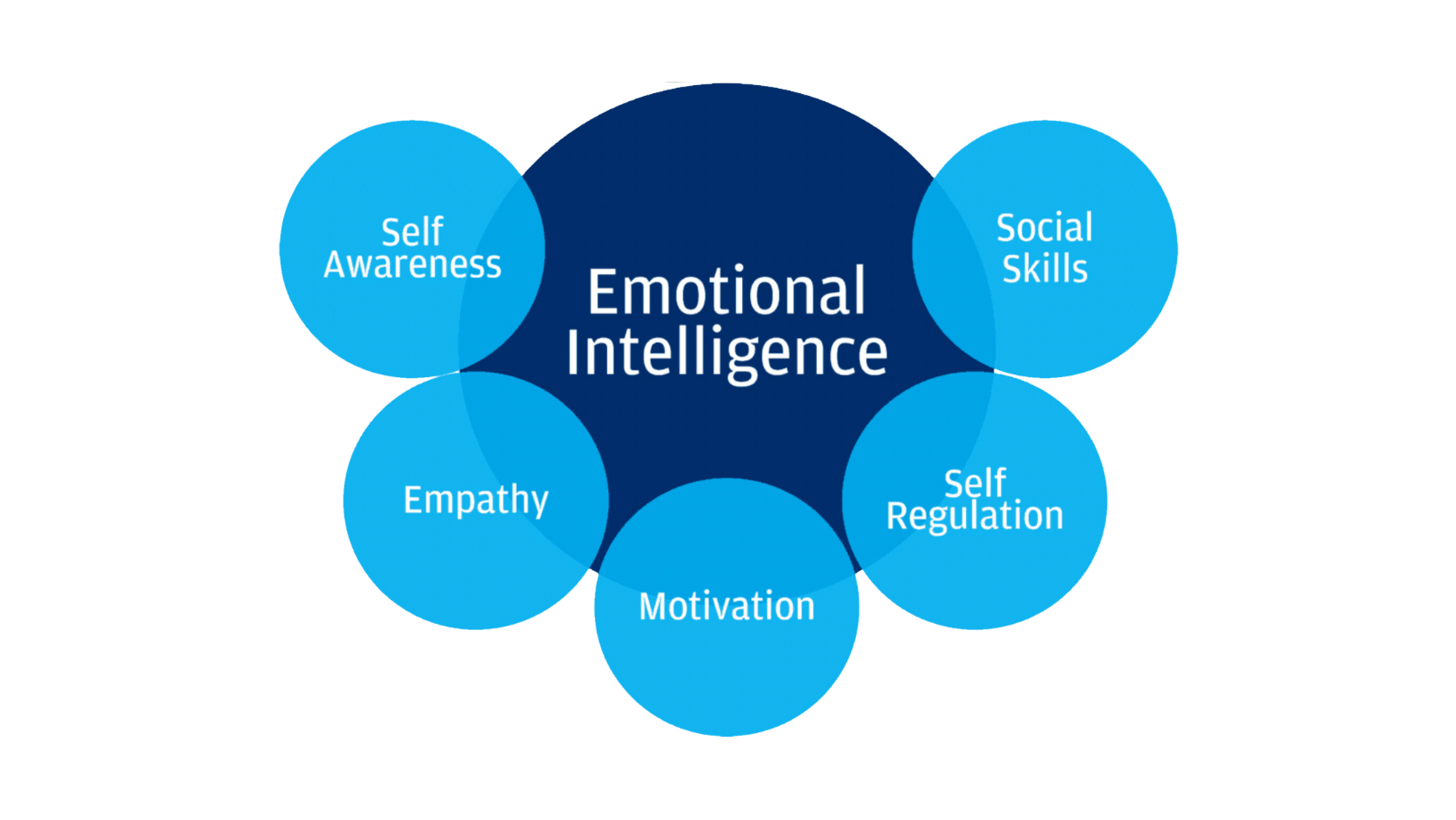In the dynamic landscape of modern leadership, where the ability to navigate complexities and inspire teams is paramount, emotional intelligence [EI] is key. Often seen as the differentiator between good and great leaders, EI encompasses a spectrum of competencies that enable individuals to understand, manage, and harness emotions effectively.
In this comprehensive guide, we will explore the significance of emotional intelligence coaching and emotional intelligence workshops for leaders and founders, and explore how it can unlock the full potential of individuals and teams.
UNDERSTANDING EMOTIONAL INTELLIGENCE
Emotional intelligence refers to the capacity to recognize, understand, and manage one’s own emotions, as well as those of others, in the moment. There are four primary components of EI:
- SELF-AWARENESS
At the core of emotional intelligence lies self-awareness, the ability to recognize your own emotions and their impact on thoughts, behavior, and performance. Leaders with high self-awareness have clarity regarding their strengths, opportunities, values, their impact, and goals, leading them to make informed decisions, be authentic, request support when needed, and build strong relationships with their teams and colleagues.
- SELF-REGULATION
Self-regulation is the ability to control impulses, manage stress, and adapt to changing circumstances constructively. Leaders who can self-regulation are resilient in the face of challenges, maintain composure during new and high- pressure situations, and are consistent in their actions, fostering trust and stability within their teams.
- SOCIAL AWARENESS
Social awareness involves the capacity to empathize with others, understand their perspectives, and navigate social dynamics adeptly. Leaders with strong social awareness cultivate inclusive environments, foster collaboration, and demonstrate genuine interest in the well-being of their team members, creating a sense of belonging and cohesion.
- RELATIONSHIP MANAGEMENT
Relationship management encompasses the ability to communicate effectively, resolve conflicts, and cultivate meaningful connections. Essentially, it is the ability to connect and choose to understand the people you work and collaborate with to move things forward.
Leaders proficient in relationship management inspire loyalty, create open communication channels, and cultivate a culture of accountability and respect, driving team performance and engagement.
THE IMPACT OF EMOTIONAL INTELLIGENCE ON LEADERSHIP EFFECTIVENESS
Emotional intelligence significantly influences leadership effectiveness across various domains, including communication, decision-making, conflict resolution, and team dynamics. Leaders with high EI exhibit the following traits:
- ENHANCED COMMUNICATION SKILLS
Effective communication is key in leadership, and emotional intelligence leads the ability to convey ideas persuasively, actively listen, and tailor communication styles to resonate with diverse audiences. Leaders with high EI create clarity, transparency, and trust through open dialogue, ensuring alignment and clarity of purpose within their teams.
- IMPROVED DECISION-MAKING
Emotional intelligence equips leaders with the ability to make sound decisions when there is ambiguity and uncertainty. By integrating emotional insights with rational analysis, emotionally intelligent leaders can anticipate potential outcomes, weigh alternatives, and make decisions that align with organizational objectives while considering the impact on stakeholders.
- CONSTRUCTIVE CONFLICT RESOLUTION
Conflict is inevitable in any organizational setting, yet emotionally intelligent leaders approach conflicts as opportunities for growth and resolution. By demonstrating empathy, active listening, and perspective-taking, they navigate conflicts collaboratively, creating understanding and consensus while preserving relationships and promoting a culture of constructive feedback.
- STRENGTHENED TEAM DYNAMICS
Emotionally intelligent leaders create environments and team cultures where people feel valued, empowered, and motivated to contribute their best efforts. Through mentorship, coaching, and recognition, they nurture the professional development of their team members, harnessing diverse talent and perspectives to drive innovation, creativity, and collective success.
CULTIVATING EMOTIONAL INTELLIGENCE AS A LEADER
While some people may naturally possess higher levels of emotional intelligence, it is a skill that can be developed and refined over time through intentional practice and self-awareness.
Here are some strategies to cultivate emotional intelligence as a leader:
- REFLECTIVE PRACTICE
Engage in regular self-reflection to connect with and understand your emotional buttons, reactions, and patterns of behavior. Identify areas for growth and set actionable goals to enhance your emotional self-awareness and self-regulation.
- SEEK FEEDBACK
Seek feedback from colleagues, mentors, HR Partners, and team members to gain insights into how your emotions and actions impact others. Embrace constructive feedback as opportunities for growth and strive to incorporate feedback into your leadership approach.
- PRACTICE EMPATHY
Be empathic by actively listening to others, seeking to understand their perspectives, and acknowledging their emotions. Empathy fosters trust, rapport, and mutual respect, laying the foundation for effective communication and relationship building. Habit 5 from Stephen Covey’s book, The 7 Habits of Highly Effective People, gives some examples of how seeking to understand is a leadership superpower.
- DEVELOP RESILIENCE
Strengthen your resilience by reframing setbacks as learning opportunities, maintaining a positive outlook amidst challenges, and leveraging support networks for guidance and encouragement. Resilience enables you to bounce back from adversity and lead with confidence and determination.
Emotional intelligence serves as a cornerstone of effective leadership, enabling individuals to navigate complexities, inspire teams, and unlock the full potential of themselves and others.
By cultivating self-awareness, self-regulation, social awareness, and relationship management skills, leaders can create environments of trust, collaboration, and innovation, driving organizational success in today’s fast-paced world.
Embrace the power of Emotional Intelligence Coaching and Workshops by Evolve, and begin a journey of personal and professional growth as a visionary leader.


